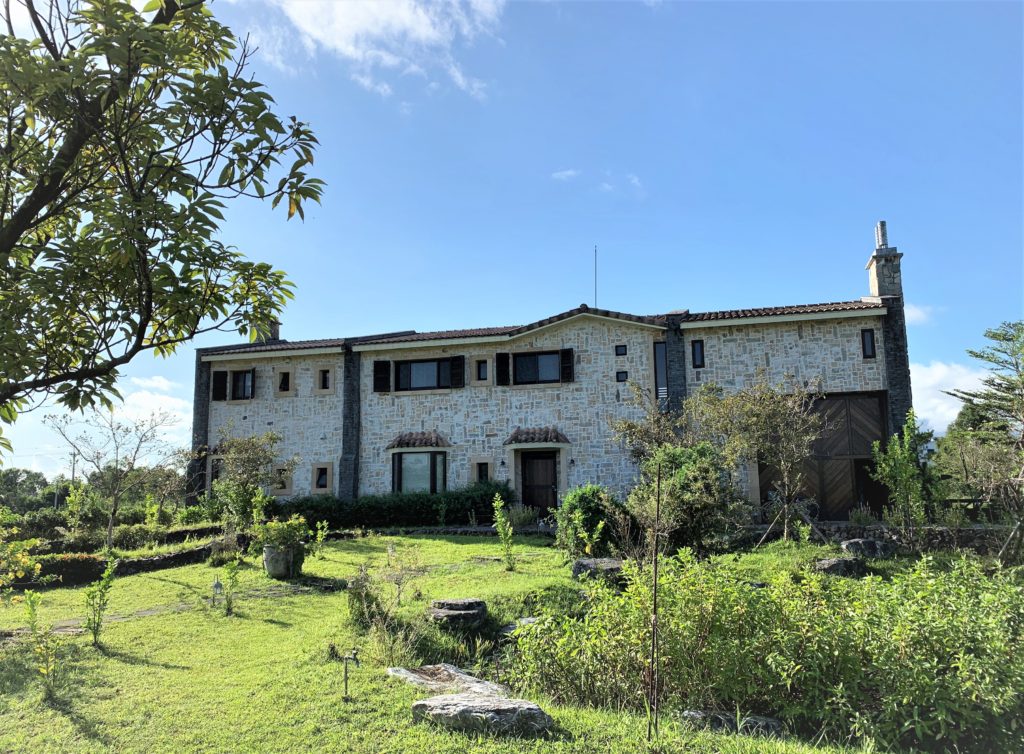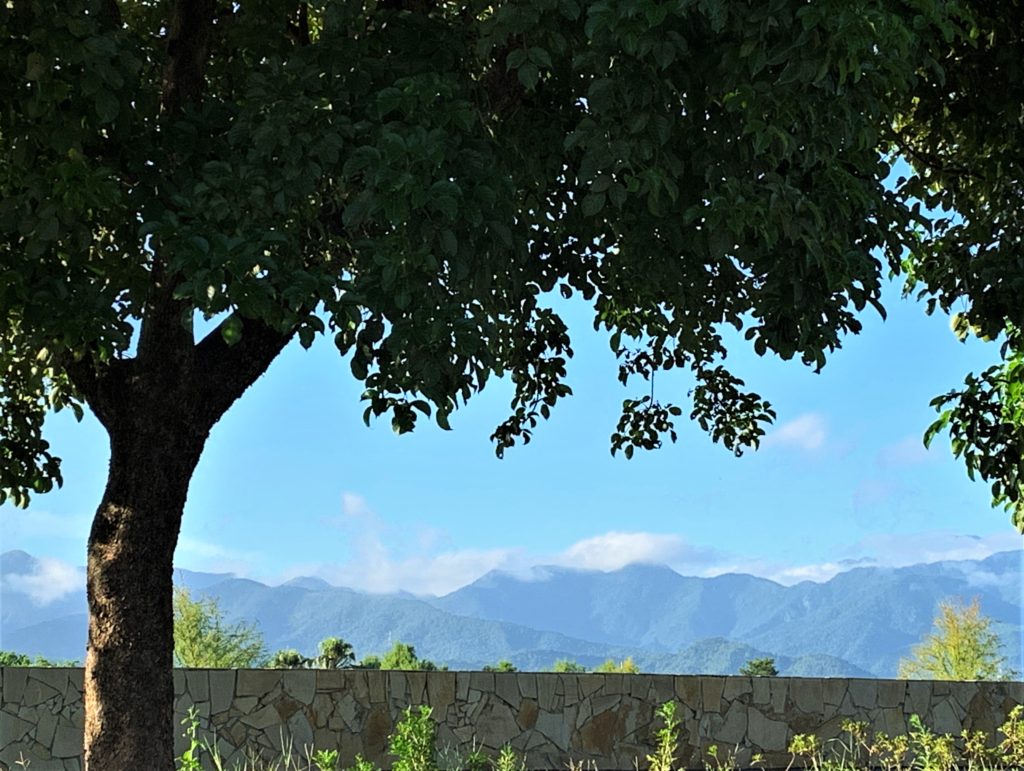I always spent last few weeks of summer in Taiwan with my family. And, it has become a routine that we spent a weekend in Yilan 宜蘭. With mom’s declining condition, I didn’t think that we would venture out of Taipei this year. Still, Robert booked an overnight stay.
To my surprise, mom was observant, sitting in the front seat. She enjoyed the foods and loved the attention that everyone gave her. The unfamiliarity of surroundings did cause her anxiety in some incidents. And, she was exhausted after a few hours.
Yilan used to be a sleepy farming and fishing village. Until the last decade, to reach the area from Taipei, it was necessary to travel through winding mountain roads, known as 九彎十八拐 (nine bends and eighteen turns—Google translation). The construction and opening of Xueshan Tunnels 雪山隧道 eliminated the challenge.[1] By cutting through the mountains, it shortened the travel time from two and a half hours to forty minutes. Within a few years, Yilan became the favorite place for a weekend get-away for city folks. Bed & breakfast popped up in the middle of farm fields.
This time we stayed at an interesting establishment. The owners quit their corporate jobs, built a carefully-designed five-room two-story house, and started an organic farm. The house was surrounded by rice paddies, lotus ponds, fruit trees and vegetable gardens.

Early in the morning, while my family was still asleep, I went for a long walk. Carefully, I took the narrow paths between the lotus pond and the rice fields. Late in the season, lotus leaves, burnt by the scorching sun, were black and fragmented. The last few lotus blossoms hidden underneath them softened the image slightly. Water in the rice fields had been drained. Grains on the tillers were still green. Nearby, new crops—last of this year—were already planted in water-filled paddies. Stirred by my movements, little egrets白鷺鷥 let go of their catches and flew to the nearby fields.
I reached the bank of Annong River 安農溪. Biking and hiking trails lined up both sides of the river. Judging by the height of the levees, the water level could rise dramatically during rainy season. Yet, on that particular morning, the river flowed softly like a ribbon.


Crossing the river, there were a few beautifully built new houses. Blooming trees attracted birds and butterflies. Folk were already up, cleaning their yards and getting ready for a new day. Even with the cool morning breezes, I had to shield myself from the rising sun, walking along the shady side of the road. Turning around, I saw mountains, still draped by clouds and mists, stretching all the way towards the ocean. I stopped to take some photos. At that moment, I was overwhelmed by a sense of remorse:

For about two decades, while Robert and I were both away, mom took on traveling and photography. At first, she joined tour groups and snapped casual images of scenery and friends. Then, she joined Chinese Society of Natural Photography自然與生態攝影學會.[2] She hiked up mountains with young people to catch images of natural wonders. Throughout the 90s, during her visits, we would plan all kinds of activities so she could discover new subjects—be it cultural or natural.

When I was at work, mom often practiced her skills on subjects around my house. She loved shooting clouds and sunsets. She couldn’t get enough of autumn foliage. When the photos and slides were processed, she would point out the merits and flaws of each shot to me. She loved going down to Amish country, to observe the slow-paced life, the horse-drawn buggies, the traditional attire, and the handcrafts. When weekend trips in nearby county couldn’t satisfy her anymore, we went all the way to Dutch Country in Pennsylvania. Mom loved Frank Lloyd Wright’s Fallingwater.[3] We visited there during different seasons. In order to see all the interior details, we took a private guided tour once.

We also traveled to several national parks. I remembered arriving at Shenandoah mountain at dusk. Thick fog forced me to move slowly around the mountain roads. Mom was amused by the sighting of deer and was charmed by the little log cabin where we spent the night. We hiked the Great Smoky Mountain for the incredible autumn views. And, before moving to the city, we made a trip to Glacier National Park, where mom made me drive back and forth catching the perfect sunset view. It wasn’t always easy to satisfy mom’s desires for more trips and better scenery. From time to time, I would get really frustrated and would argue with her.
After my move to New York, mom stopped coming to the States. Chaotic city life wasn’t to her liking. In 2004, I became a permanent resident of U.S. and was free to travel again. But, by then, mom had a second knee surgery and had slowed down quite a bit. Even when we took our family trips, we never got to experience the beauty in our surroundings as in the old days.
I wondered what kind of images mom would have caught with her camera or digital devices, if she were standing next to me by the riverbank. I was grateful to know that, from moment to moment, her eyes were still taking shots. I was grateful that, when mom woke up that morning, she was at a beautiful place that she would have appreciated very much.
[1] Xueshan_Tunnel_Wiki
Man Made Marvels 101, Taiwan Hsuehshan Tunnel, YouTube
[2] Chinese Society of Natural Photography
[3] Fallingwater.org
